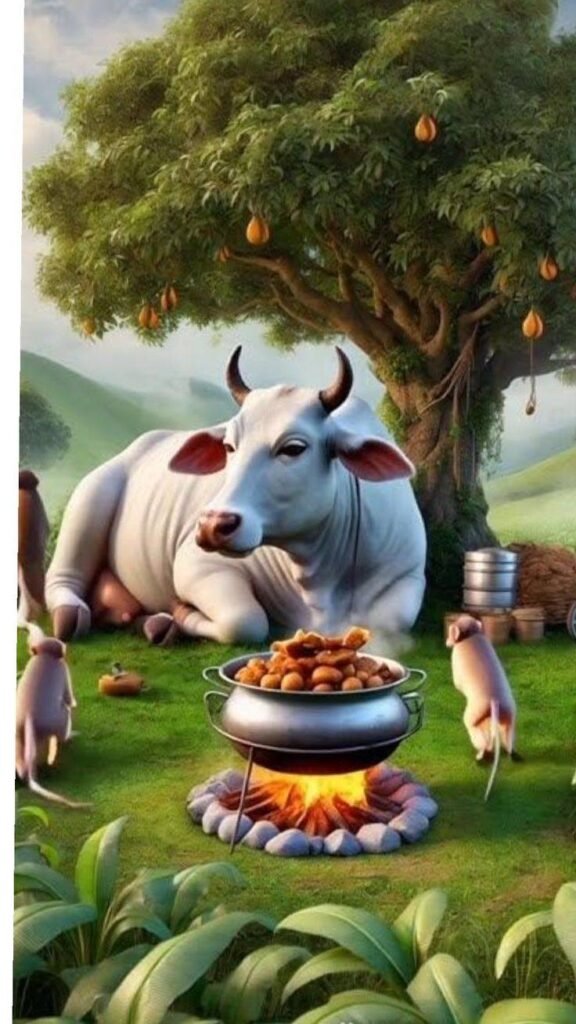Holy cow or holy soybean?
Metaphysical disorders and spiritual substitutes in modern eating
Somewhere between the Indian subcontinent and a vegan bistro in Berlin, a concept is lost: the sanctity. On one side is the cow - slowly pacing, knowledge gleaming in her eyes, the patience of Mother Earth incarnate. On the other side: the soybean - laboratory-isolated, probiotic-tuned, packaged vacuum-packed wisdom. And the big question is no longer what to eat, but what we consider to be what we do not eat.
The cow: moving temple or methane-producing unit?
In the traditional world the cow Holy, because ad. Milk, manure, warmth, patience. Not as a product, but as ontological presence. He is holy not because he is useful - but because walking in the body of the dharma.
The cow does not feed you - the relationship feedsthat you create with it. And that's why we don't eat it - not because it's a "sin", but because too close. Like a mother.
In the modern world, however, the cow exists in two forms:
- as meat,
- as a scapegoat.
The new protagonist of the climate myth: the cow farts. And poor earth suffers from. Instead of asking about airplanes, mines, mobile phone factories or 24/7 datacentres, we point to the ruminant:
"You are the problem. Because you're breathing."
And this is where the holy soybean.
The new totem of the spiritually tuned urban man: no eyes, no memory, no motherhood. In exchange has protein content and good PR.
Soybeans don't look back at you. It's not hard to forgive him. But the cow reminds you. He looks you in the eye and knows who you are. This is why it is uncomfortable.
Soya beans are like IKEA Buddhism: clear, laid out, interpretable. There are no questions - just nutritional value and etiquette.
Western spiritual thinking has come to the point where sacred is what we do not regret. But not because we see the Absolute in it - but because more convenient not to touch.
The cow is not comfortable. It's big, noisy, smelly, and we had something to do with it. But soybeans are sterile, quiet, packaged - and no past. Therefore free. And what we call free is morally sterile.
But holiness does not begin where guilt falls short.
Holiness begins where there is a presence, relationship, reciprocity - and responsibility.
It is not a question of whether we eat meat or tofu. It's whether what we are connected to.
- An ancient order where the animal is part of the sacred cycle of life?
- Or to a global post-system where nutrition is a shadow of real connection?
The sacred cow is not about food - it's about about you.
The holy soybean is not about you - it's about, what you want to avoid.

